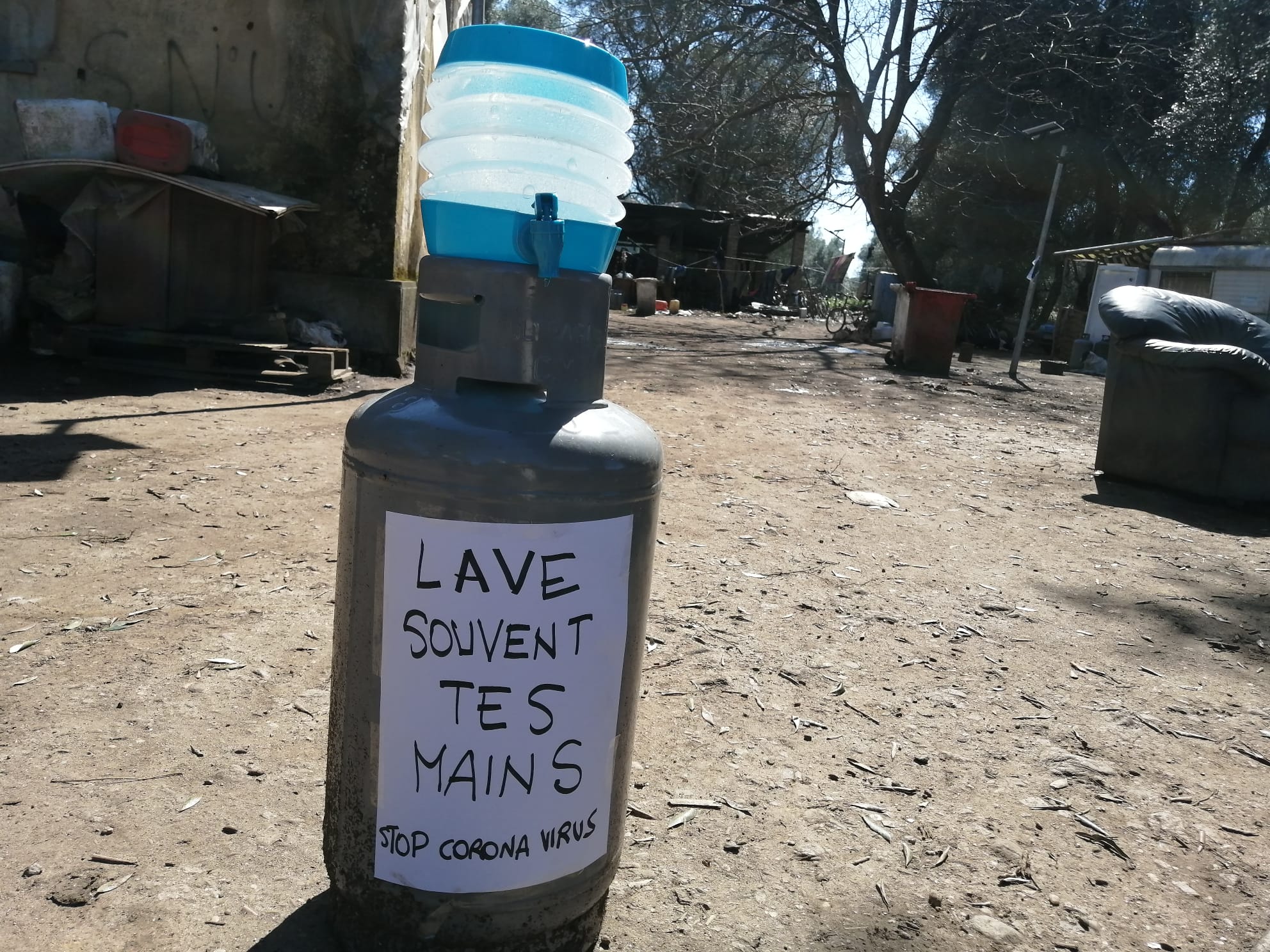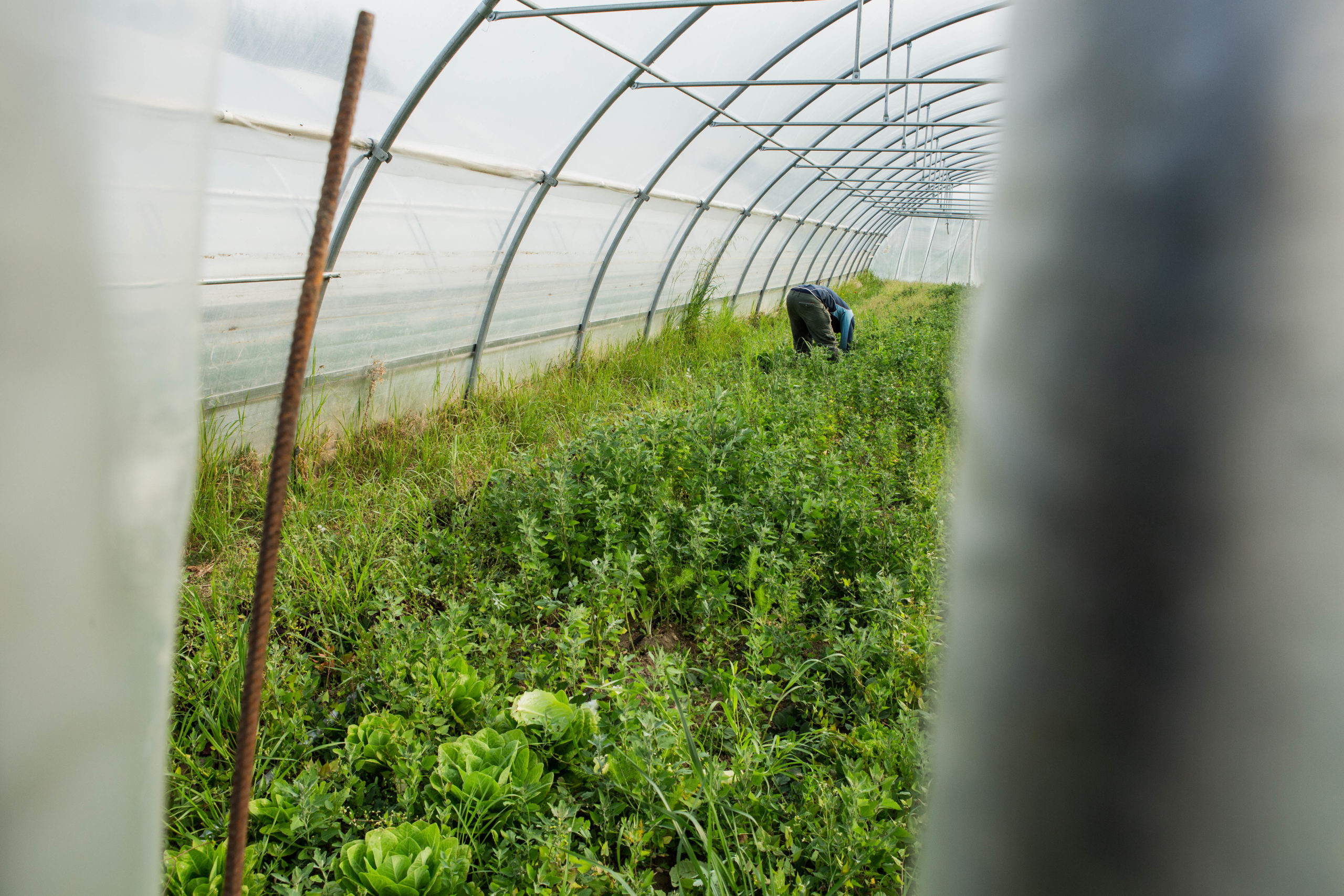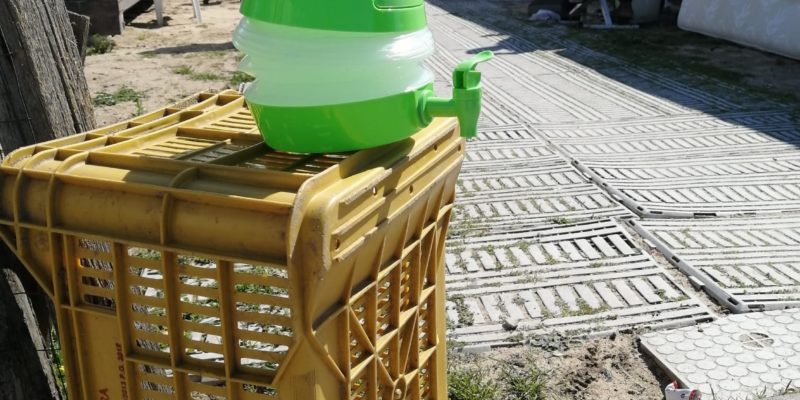Mohammed Ghani, 22, from Mali, cannot hide his concern. He finished harvesting oranges in the plain of Gioia Tauro (Calabria) over two months ago, and his last wage, paid under the table, dates back to the end of February. “Every year, at the end of season, I move to Saluzzo. But how can I do that now?” he tells us in French, “We cannot carry on in this condition, with no water, no food, no job, nothing at all.”
As hundreds of people like him, Mohammed is stuck in the so-called ghetto of Taurianova, in the province of Reggio Calabria. Even during the Covid-19 outbreak, in settlements like Taurianova life has continued with no running water or sanitation facilities and without any energy source other than a decrepit generator. Fear of the pandemic, lack of employment and difficulties to buy food make life in the ghetto very complicated. On April 8, a 31-year-old man from Mali died after being attacked by a fellow countryman in the Taurianova camp. However, Mohammed’s main worries seem to revolve around documents and a job. “Of course, we fear the virus” he says. “We do not have any drinkable water or showers. Nobody collects trash and we are forced to get our water from a well, but hunger is scarier. How are we supposed to work? We cannot even move without documents,” he says.
The legal status of the people living in the Taurianova ghetto, in their majority from Africa, is very diverse: some appealed to obtain asylum, some were excluded from humanitarian protection after the first Conte government approved the security decree, some received a rejection by the commission and others have regular residence permits expiring soon, but risk becoming illegal because they do not have any address or residence.
The “Salvini decree” (decree law 113/2018), including measures on immigration and public safety, and allowing police and municipalities a degree of discretion in the interpretation of the norms, created a vicious cycle where many found themselves unable to renew their residence permits, or unable to convert them because of the residence requirement.

Sanitiser in the Taurianova ghetto, distributed by Mediterranean Hope (April 2020). Photo by Francesco Piobicchi
Mohammed is precisely in this situation. His residence permit expired and he was not able to renew it because he does not have a residence. So he ended up among the thousands of “invisibles”: illegal foreigners living on the Italian territory but at the margins of society. It is not only farm labourers; this category includes domestic workers, caregivers, babysitters. According to estimations by the Italian Institute for International Political Studies (ISPI), the number of illegal foreigners could reach 600,000 people by the end of 2020. 600,000 invisibles with no access to socio-economic welfare or healthcare, and excluded from any possible monitoring during the pandemic.
If in normal times those invisible people could work and move freely across the country, the inconsistencies of their situation are exploding today with the Covid-19 emergency, especially in the agri-food sector. Lockdowns and border closures made moving difficult: thousands of seasonal workers are stuck in Eastern Europe and as many are confined in the several Italian ghettos. The lack of labourers risks hindering a fundamental supply chain, that of food; it is now evident that those foreign workers are essential for the national agricultural system.
In the estimations by Coldiretti, the major Italian farmer organization, almost one million seasonal labourers are missing from the farmlands of the main agricultural countries due to the closure of European borders. The EU risks losing its food self-sufficiency and its role as main worldwide exporter of food, a business worth 151.2 billion euros. According to Coldiretti, the worst outlook concerns Italy, which exports more than a quarter of its produce harvested by the 370,000 legal foreign workers arriving in the country every year, who account for 27% of the overall workdays of the sector. Coldiretti is asking to open the borders so that seasonal workers from Eastern Europe – Romania and Moldova – can enter Italy. Teresa Bellanova, the Italian Minister of Agriculture, in addition to her proposal to employ laid off and unemployed workers, is also in negotiations with Bucharest to open “green corridors” that facilitate the arrival of seasonal workers. A similar solution was adopted by Germany and the UK, also facing a crisis for the lack of farm labourers.
Not only manpower: regularising is a matter of rights
“Our priority is the regularisation of all the farm labourers who already live in Italy, ensuring them decorous accommodation, fair pay and the possibility to move” points out Ilaria Zambelli from Medici per i Diritti Umani (MEDU), a humanitarian organization assisting workers with a mobile clinic and a legal desk in the area around Gioia Tauro.
Many humanitarian organizations and associations – such as Oxfam, Arci, Acli Terra, Caritas Italy, MEDU, Libera, Avviso Pubblico, the Jerry Masslo association, the Ex Canapificio di Caserta community centre – sent a letter-appeal to national authorities, asking for the regularisation of those people who are forced to live and work in illegal conditions, especially as farm labourers and house helpers.
“In the last weeks we have firmly asked for regularisation to solve our farming problem. Why can’t we regularise the people who are already here and toil in our fields, without any contract and exploited like animals?” points out Jean René Bilongo from the “Placido Rizzotto” Observatory of the FLAI-CGIL trade unions. According to this Observatory, around 160-180,000 labourers currently live in precarious sanitary conditions in the ghettos of Rosarno (Calabria), Borgo Mezzanone (Puglia), the Pontine Marshes (Lazio) or the Sele River plain (Campania). “We demand the closure of these ghettos or makeshift camps, in order to protect the health of all the people who live inside and outside them. What could happen in a place where you cannot wash your hands, let alone respect social distancing? The risk is a new outbreak of the virus.”

Farm labourer in a greenhouse in Pianoro, in the province of Bologna (April 2020). Photo by Arianna Pagani
According to Marco Omizzolo, sociologist, president of Tempi Moderni and researcher at Amnesty International, the proposal to open corridors from Eastern Europe must include legal recognition. “We cannot import people to underpay and exploit them in our fields. We denounce exploitation in its many forms – one of which is caporalato, illegal recruitment by gangmasters – as a typical element of a production system. The idea of importing labourers and making them work without controls and without any rights is worrying. Our first goal should be the regularisation of workers who already live in Italy, often illegally because they do not have a residence permit, in conditions of social marginalization, exploitation and deprivation of rights. This is the only solution that would allow them to work within the law, avoid the control of criminal organizations, landowners and gangmasters, and enjoy the right to health that is crucial in this phase.”
The current crisis is so serious that even big farmer organizations like Coldiretti are gradually acknowledging the importance of regularising labourers. For example, they asked to extend the voucher-based system to farm labour in order to “increase the amount of people that can legally work in the fields on a casual basis, thanks to the application of a simplified procedure that also involves social security contributions,” explains Pietro Bitonti, vice president of Coldiretti in the province of Matera.
This proposal, however, was not welcomed so warmly by trade unions. As Jean Renè Bilongo says: “We consider the voucher as a device for casual work, while regular work should be paid and ruled by employment contracts. Making an exception will get us nowhere. Vouchers will not solve anything; they will only weaken the most fragile part of the chain, that is, labourers.”
Rebalancing the power of large retailers
Caporalato is indeed an integral part of the agricultural system, but it is fundamental to look at the bigger picture and understand the mechanisms behind it and behind exploitation. Francesco Piobicchi works with Mediterranean Hope, the program for migrants and refugees managed by the Italian Federation of Evangelical Churches, active in the Gioia Tauro plain: “Now that supermarkets face shortage of food supplies with Covid-19, we finally discover that we need these workers. And while large retailers continue accumulating profits, wages stay low. But why do food prices increase, while wages do not? If the pay was decent, even Italians would probably be more willing to work in farmlands. We need to rebalance the agricultural supply chain starting from the corporate responsibility of large retailers,” he says.
As Stefano Liberti and Fabio Ciconte, journalists and writers of “Il grande carrello” (The big shopping cart), reported in several works in the past few years, unfair practices adopted by some of the large retailers – underpricing policies or reverse auctions, just to name two – have a domino effect on the entire supply chain, especially on suppliers and farmers who, asphyxiated by the low prices imposed, have to undersell their products and save money on manpower.
“We believe it is time to rebalance corporate responsibility and hold large retailers more accountable” says Liberti on the phone, “Because retail chains have a much bigger contractual power than suppliers, they have significant revenue, and they guarantee access to the market: even more so now that they are the only outlet for agricultural suppliers and the only access to food for consumers. We need norms to face such power imbalance.”
The European directive on unfair practices in the agri-food sector, approved by the European Council and the European Parliament in March 2019, is a step in the right direction, but it has yet to be implemented by member states, Italy included. Moreover, as Omizzolo reminds, the Italian Senate still needs to approve bill 1549-A, voted upon only by the Chamber of Deputies, which prohibits reverse auctions for buying food produce. “Forbidding reverse auctions is essential to free honest agricultural businesses from the blackmail of prices imposed by large retailers.”
Short supply chain, narrative label, self-organization
In addition to its control over consumers’ access to food, the power of large retailers is also rooted in unclear, long and complex agricultural supply chains. Such lack of clarity leaves consumers in the dark about where the food they buy is produced and how, limiting their exercise of purchasing power to support virtuous businesses and punish unfair practices and exploitation.
Two of the possible solutions are narrative labels and short supply chains. The former would allow consumers to receive correct information about the entire value chain. The latter would reduce distances between supplier and consumer. One example is the work of Emporio FuoriMercato of the mutual support space Bread & Roses in Bari. Just like other actors that have been trying to create alternatives to large retailers for years, these activists decided to proactively respond to the ongoing pandemic with a home-delivery circuit of unadulterated food grown in their urban garden. “We are delivering approximately 50 boxes every week,” says Gianni de Giglio, 41, “thus allowing around ten small producers to continue selling their produce, despite authorities decided to close city markets.”
It is true that Covid-19 brought to the surface the many inconsistencies of the agricultural sector. However, this emergency can also represent an opportunity for change. Regularising illegal farm labourers, ruling on the power of large retailers and promoting short supply chains can become real solutions to problems that were lagging the system long before the pandemic. But decisions need to be taken in the coming weeks, Omizzolo warns. “If we do not act immediately, there might be serious damage to the Italian agricultural system, affecting the rights of workers and of honest citizens and business owners. Criminal organizations would only benefit from that. That is why institutions need to act fast.”
Cover: home-made sanitiser dispenser provided by Mediterranean Hope in the Rosarno camp









